Atlanta Grease Trap Pumping
Atlanta Grease Trap Cleaning & Wastewater Treatment
We are the premier all-in-one non-hazardous liquid waste management solution in Atlanta, GA. We offer a vast portfolio of services with the best customer experience in the industry. Let us help you reach your maintenance, environmental, and disposal goals.
Industries We Serve
Used Cooking Oil Collection for Restaurants & Convenience Stores
We provide services near Atlanta, GA for grease traps, used cooking oil collections, drain cleaning, grease trap pumping, pressure washing and non-haz spill cleanup.
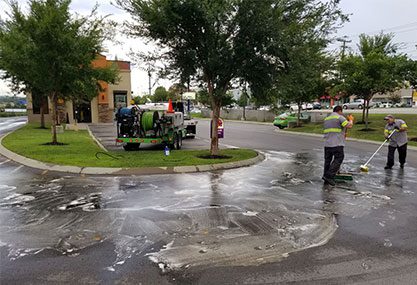
Carwash
We can remove water, sand, dirt, and more from your car wash, auto or truck service facility, parking lot, or any other paved surface where there is a wastewater and stormwater runoff.

Food and Beverage Processing
Atlanta Trucking Services for pumping and hauling, oil collection, jetting, pressure washing, spill cleanup, disposal, and product destruction.
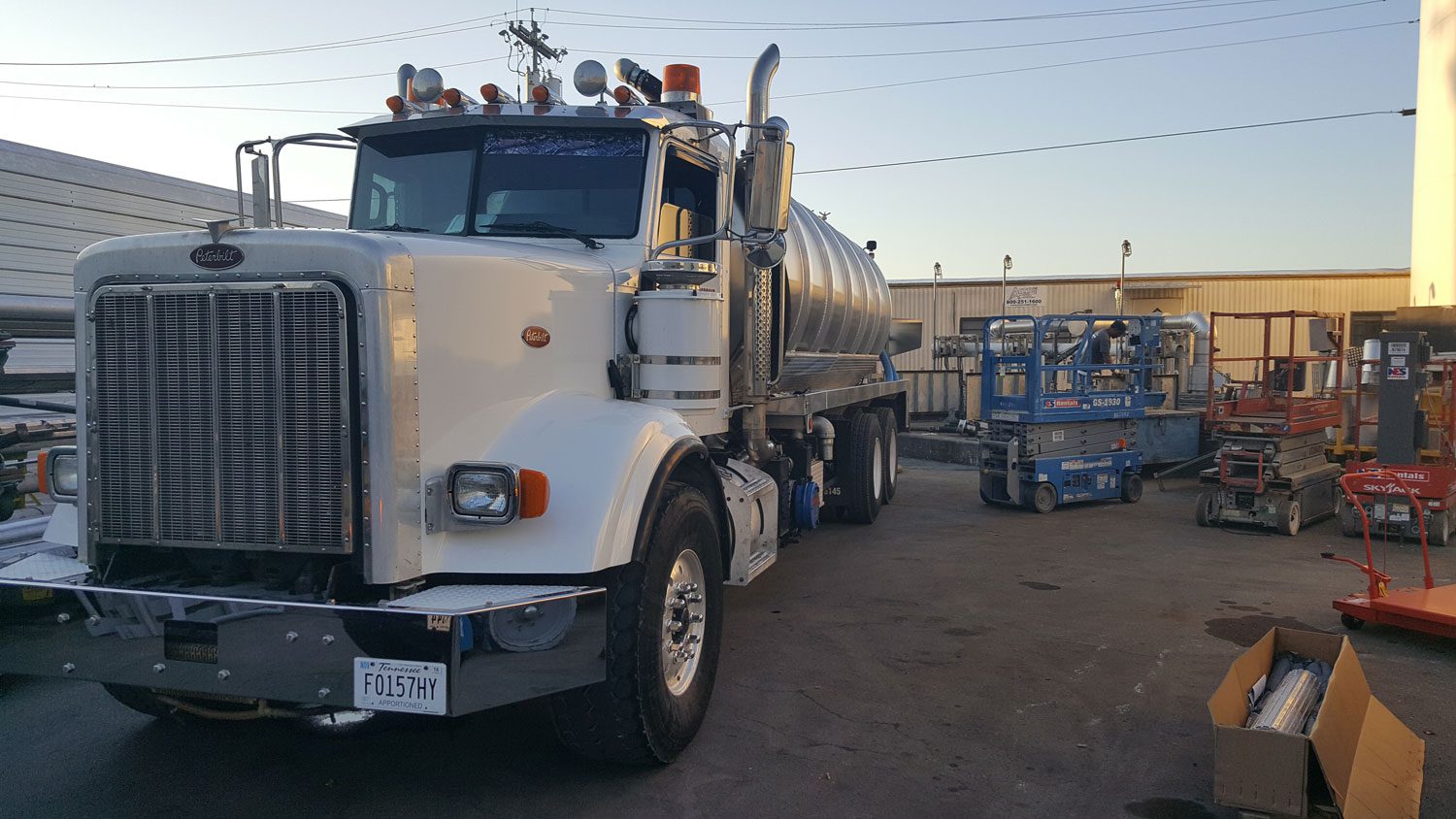
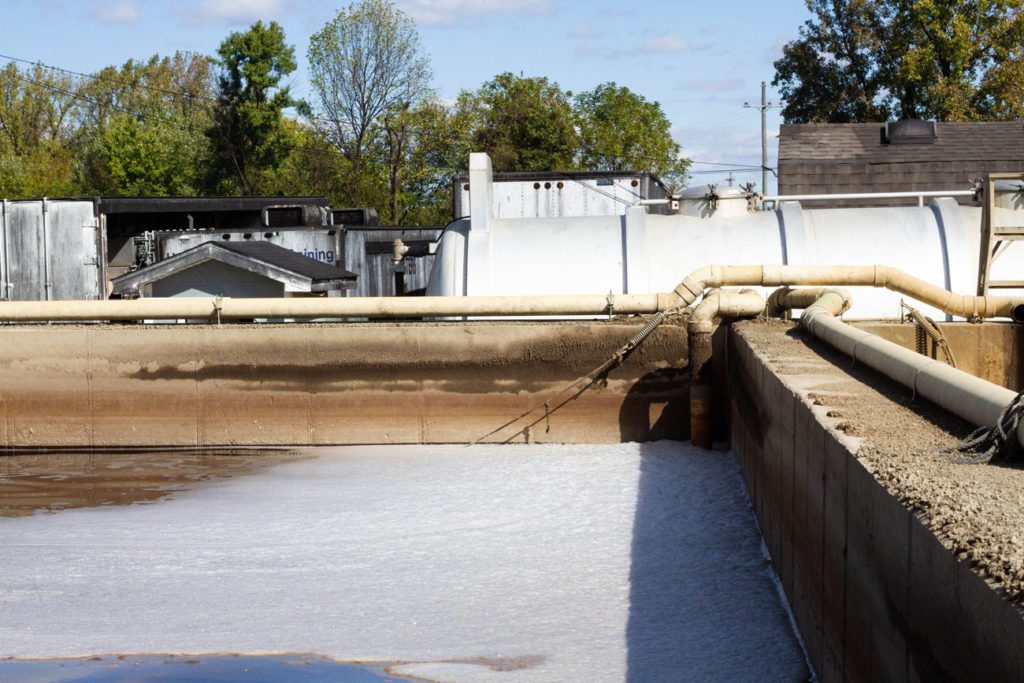
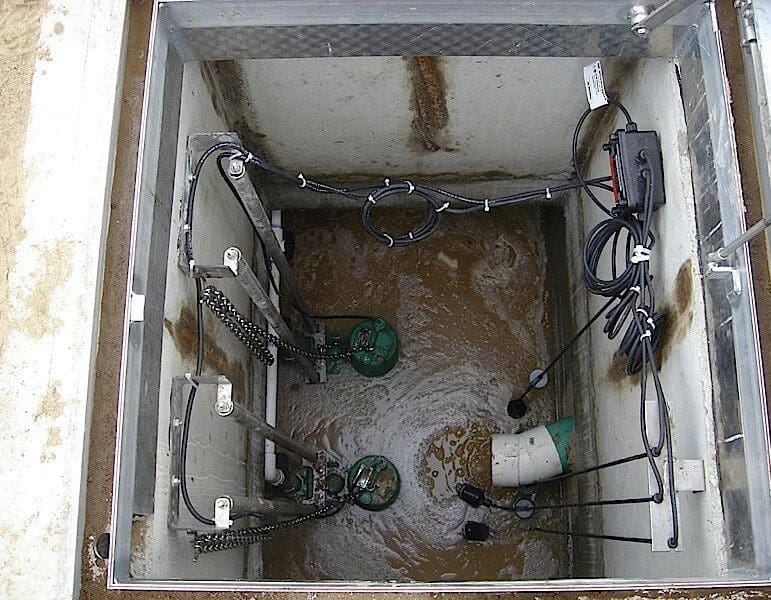
- Used Cooking Oil Collections
- Carwash
- Food and Beverage Processing
- Environmental Services
- Commercial Septic
Used Cooking Oil Collection for Restaurants & Convenience Stores
We provide services near Atlanta, GA for grease traps, used cooking oil collections, drain cleaning, grease trap pumping, pressure washing and non-haz spill cleanup.

Carwash
We can remove water, sand, dirt, and more from your car wash, auto or truck service facility, parking lot, or any other paved surface where there is a wastewater and stormwater runoff.

Food and Beverage Processing
Atlanta Trucking Services for pumping and hauling, oil collection, jetting, pressure washing, spill cleanup, disposal, and product destruction.



Why Choose Us?
The Sustainable Solution
Our responsibility to the planet is as important as anything we do.
Minimize Liquid Waste Impact
Our comprehensive material life cycle minimizes liquid waste impact.
The Grasslands Advantage
We work with you to tailor the maintenance program that fits your needs.
Grease Trap Cleaning Georgia | Atlantic Pit Services
Fats, Oils and Grease (FOG) in sewer systems are quickly becoming a problem in many cities, including Atlanta. Let us help you get on one of our environmentally friendly grease trap maintenance programs. Grease traps play a huge role in preventing FOG (fats, oils and grease) from entering the main sewer system where they can cause damage to drainage systems and the environment at large.
Often known as grease recovery devices and grease interceptors, grease traps have the sole purpose to trap grease from dirty water before it enters an establishment/household’s main waste system.
It is important to take grease prevention seriously, it preserves the environment and protects your business from any fines and in some dire cases, even imprisonment. Our Atlantic Pit Services help you with Grease Trap Pumping in Atlanta, GA and surrounding areas.
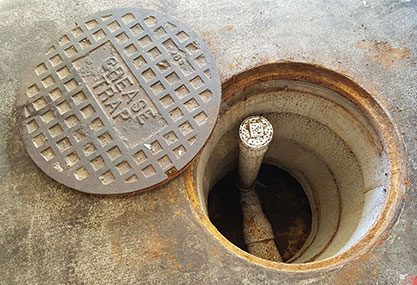
Hydro Jetting
In installing a grease trap, you need to consider several factors that will determine the size you need, such as the number of sinks present in the kitchen and the total flow rate that will be passing through the grease trap. You also have to make sure it is properly installed and working well.
After installation of a grease trap, the work is still not finished. The grease trap must be routinely maintained and cleaned. If you fail to do this, your grease traps will no longer be effective or function properly. The use of Hydro Jetting, also known as Line Jetting, is the process of using high pressure to clear out any clogs from FOGs that may be clogging up the line. This is best left to the professionals.
For example, if your grease traps aren’t cleaned regularly, they could be deemed inefficient. This could potentially cause your business to be open to fines.
Based on the end results of FOGs, investigators can even enforce legislation where necessary. Businesses cannot hide behind an outright denial of responsibility and if a business disregards the legislation, they will be held accountable.
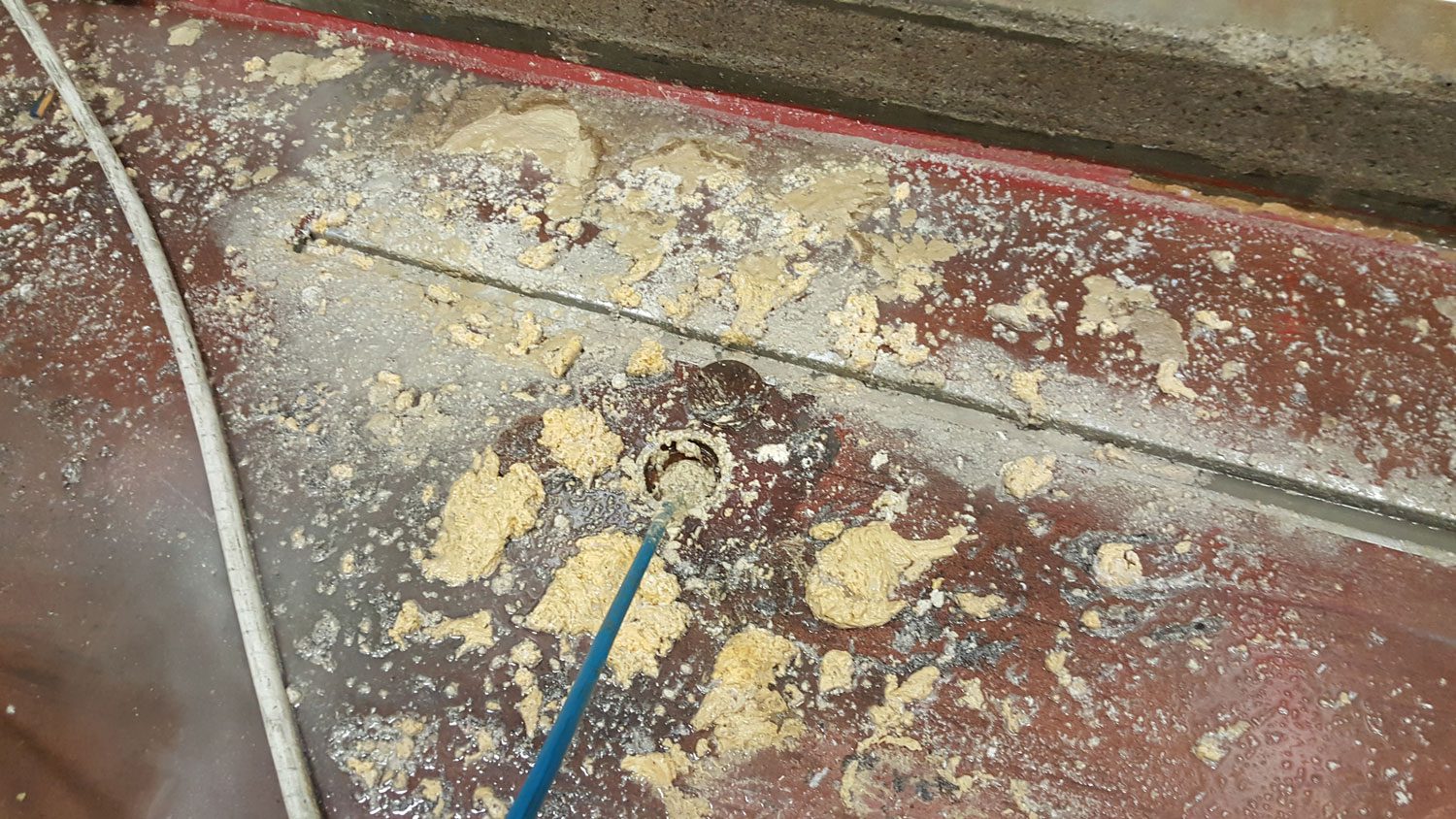
Commercial Drain Cleaning | Atlantic Pit Services
Based on the type of grease trap your business has installed, whether passive or automatic, it needs to be cleaned at regular intervals and with varying methods. This can be dirty work, and we advise you make use of a specialist company to help clean out your grease trap. Let us take care of your commercial drain cleaning and maintenance.
For larger grease traps typically positioned out of the building, inside or above the ground, pumping equipment is usually used by a trained specialist. For smaller units, they can be cleaned in-house if you so desire.
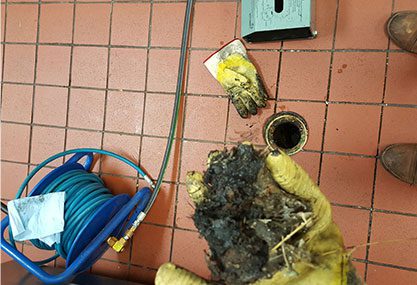
Atlanta Grease Trap Cleaning Intervals
The amount of time in between cleanings is something you need to know regardless of whether you will be the one doing the cleaning or if you will be hiring a specialist to do the dirty work for you. This is also important so you’ll make sure the grease interceptors continue to be effective.
How regularly you clean your grease trap will depend on the type installed, the level of usage and the total flow rate of water that is put through the system. A general rule of thumb is to monitor traps regularly; perhaps you can start with once a week and later scale the frequency of checks based on results.
To lessen frequency of cleanings, you can make use of bacteria additives as they will organically break down the waste. Steer clear from making use of hot water flushes or products that are composed of just enzymes as these products will liquefy the FOGs and send them to the drainage system and then straight down to municipal sewer lines.
There are two types of grease traps, and they require different methods of cleaning. The passive, or manual, grease traps are labor intensive and require regular in-depth cleaning. More often than not, when the grease trap lid is removed, contamination can occur from the bacteria released from the FOG. Therefore, we recommend that your kitchen undergoes a thorough cleaning every time your grease trap is opened.
As for automatic grease traps, they don’t take much when it comes to cleaning and they end up being cheaper in the long run. They only require in-depth cleaning every couple of months depending on their usage. They are also largely preferred for use by water companies.
You must make sure all grease traps are working well and functional. Ensure they are always cleaned and well maintained. If you find that you are always cleaning and emptying your interceptors, you may need to sit down and consider if your current installation is suitable for your grease management needs. If not so, you may find that you need to upgrade.
Best Tips for Grease Management in Atlanta, GA
Now that you have taken the first step to install grease traps in preventing against the hazardous effects of FOGs, the next thing to do is employ the best practices available for efficient grease management.
How can you do this? You can do so by enforcing a few rules in your kitchen that has to do with control of fats, oils and grease. By so doing, the amount of FOGs that are released into the drainage system will be reduced, and when they do end up there, you will know how to deal with them effectively.
You can enforce the following in your kitchen to help in grease management:
- Take care to scrape out any food waste into the bin before washing the plates.
- Wipe plates, pots and other cookware, etc. to get rid of excess fat, oils and grease before rinsing
- Get a cleaning schedule for your kitchen and stick to it.
- Reduce oil usage in the kitchen if at all possible.
- Ensure you have detailed paperwork including information on when the grease traps are cleaned out, by whom and the method of disposal. Also remember to take note of the quantity of FOG that is found in the grease trap every time you clean and the records of the company that carried the disposal.
There are a host of other choices for you to take in practicing effective grease management. However, these are good starting points, and if you’ve undertaken any of the above, you are in the right direction.
Note, however, that it is highly advisable that you seek the services of a well trusted and qualified specialist to help in commercial grease trap cleaning. This is to ensure all protocols are laws are properly followed and you continue to get good results your equipment for years to come.
For a full list of cities and areas we provide grease trap cleaning service for, see service areas page.